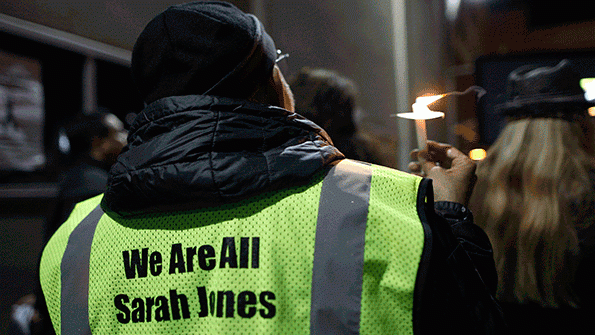Methylene chloride, also called dichloromethane, is the solvent common in many paint strippers. The widely available products with labels that warn of cancer risks but do not make clear the possibility of rapid death. In areas where the fumes can concentrate, workers and consumers risk asphyxiation or a heart attack while taking care of seemingly routine tasks. PublicIntergrity.org has researched the many deaths that have occurred while using these products and the report can be found here: http://www.publicintegrity.org/2015/09/21/17991/common-solvent-keeps-killing-workers-consumers It's a lengthy read, but it could save your life.
In the fine print of most labels they manufacturers allude to the precautions necessary when using their products, but without a magnifying glass and good lighting, the labels are often difficult to read and easily ignored. While these products can be bought at home-improvement and general retail stores across the U.S., the specialty respirators and polyvinyl-alcohol gloves needed to handle them safely are not usually available from those same retailers. OSHA and the National Institute for Occupational Safety and Health say only a full-face respirator with a separate air supply, or exhaust ventilation to remove the fumes, will provide sufficient protection.
Setting aside longer-term health concerns, such as cancer, the danger posed by methylene chloride is its one-two punch when fumes accumulate. Because it turns into carbon monoxide in the body, it can starve the heart of oxygen and prompt a heart attack. The chemical also acts as an anesthetic at high doses, so its victims slump over, no longer breathing, because the respiratory centers of their brains switch off.
In the fine print of most labels they manufacturers allude to the precautions necessary when using their products, but without a magnifying glass and good lighting, the labels are often difficult to read and easily ignored. While these products can be bought at home-improvement and general retail stores across the U.S., the specialty respirators and polyvinyl-alcohol gloves needed to handle them safely are not usually available from those same retailers. OSHA and the National Institute for Occupational Safety and Health say only a full-face respirator with a separate air supply, or exhaust ventilation to remove the fumes, will provide sufficient protection.
Setting aside longer-term health concerns, such as cancer, the danger posed by methylene chloride is its one-two punch when fumes accumulate. Because it turns into carbon monoxide in the body, it can starve the heart of oxygen and prompt a heart attack. The chemical also acts as an anesthetic at high doses, so its victims slump over, no longer breathing, because the respiratory centers of their brains switch off.
READ AND UNDERSTAND YOUR CHEMICAL PRODUCT LABELS AND SDS
THIS REALLY IS A "DO OR DIE" SITUATION







